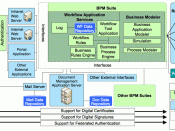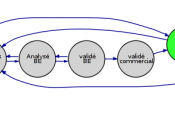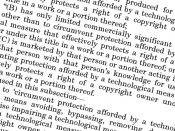0. Introduction:
The Management of Collections in the digital form raises a new set of issues but still
fit within the theoretical frame work of collection development and management.
Electronic information resources still need to be selected, acquired, catalogued, made
available, and preserved, but in radically different ways from the traditional print
materials. The type of collection management issues raised by electronic information
resources will, of course vary between libraries depending on their individual missions. The
libraries need to develop integrated collection policies for print and electronic resources. In
this context the role of collection manager is vital in developing policies and structures that
will integrate, across print and electronic media, the tasks of discovery, locations request
and delivery. The skill of the manager will be to create collections which balances the best
features of print and electronic resources, and which make them work together effectively in
the interests of library user.
1. Digital Contents:
It includes photos, text, pages, color separations, charts, graphs, statistical data,
diagram, illustrations, audio & video clips.
2.Digital Contents: Its management :
The digital content management include archiving and retrieval, abstracting and
indexing, conversion, database design and management intellectual rights management,
localization and translation of digital contents.
3. Digital Contents: Its Utility:
(i) It permits immediate access for all contents assets
(ii) Short cycle time
(iii) Easy re-purposing
(iv) Simultaneous use of content
(v) Improved quality
(vi) Simple transfer of content and online service and the internet
(vii) Its ability to customize content for target audiences and even individuals.
(viii) Greater control over brand identity
(ix) Improved content distribution and collaboration
(x) Greater flexibility of distribution channels
4. Digital Contents: Its life cycle:
The content life cycle contains three main stages:
(i) Content creation
(ii) Workflow management
(iii) Content delivery
*Lecturer, Department of Library...


